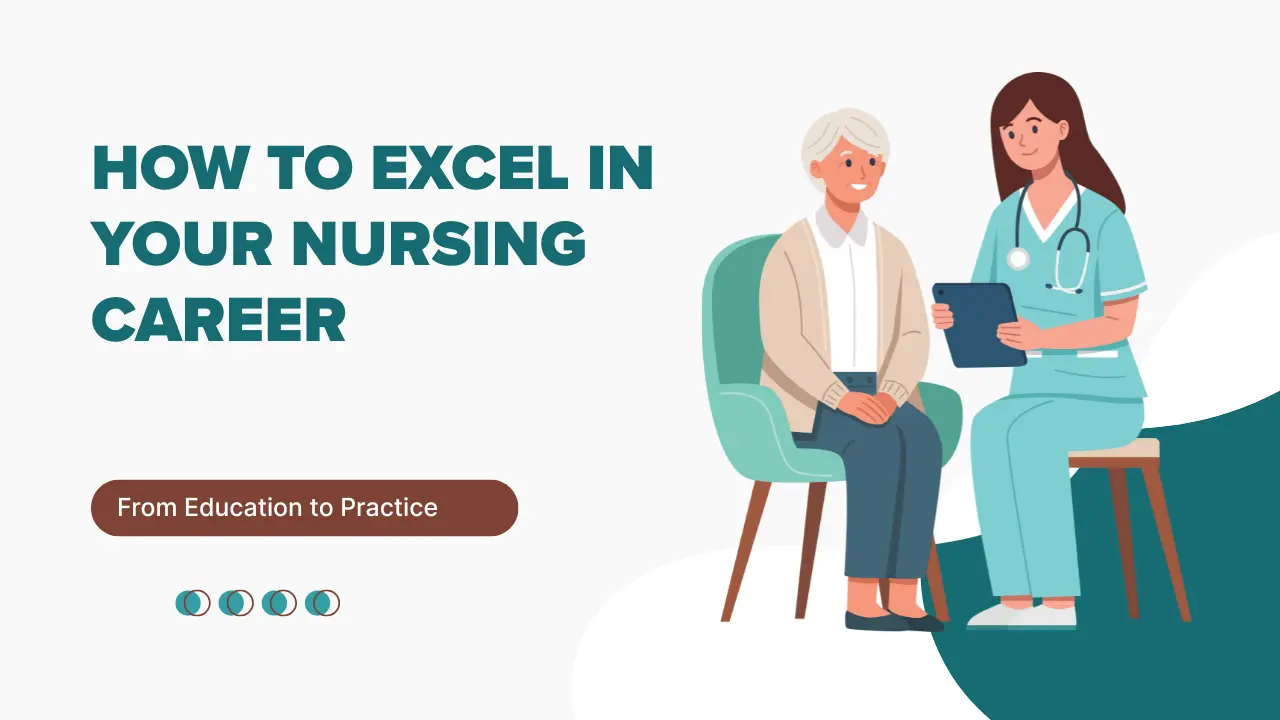From Education to Practice: How to Excel in Your Nursing Career

The journey from undergraduate study to advanced clinical responsibility requires more than just ambition. It calls for structured guidance, focused academic preparation, and a practical path that supports advancement. Those who hold a bachelor’s in the field and want to move forward often seek a program that allows them to deepen their knowledge while continuing to meet personal or professional obligations. Flexible, fast-paced learning options are available for those who want to build their credentials without putting their lives on hold. These advanced academic paths are designed to bridge theory and applied practice, setting the stage for real-world success.
Here’s how you can excel as a nurse practitioner:
Start with a Clear Career Goal
Knowing exactly where you want to go is the best way to begin. Some may want to lead teams, others may focus on community outreach or public health. A few are drawn to specialty areas such as informatics or policy. Setting a clear path early helps filter through options and choose the most suitable program. It’s not just about choosing the right degree—it’s about choosing the direction you want to take once you’re done. This also helps when tailoring your clinical experiences, electives, and practicum opportunities around a specific focus area.
Choose a Program That Fits Your Schedule and Career Ambitions
For many prospective students, the challenge lies in balancing academic preparation with real-world responsibilities. That’s where options like the online Master of Science in Nursing program at St. Thomas University come in. Designed to be completed in under two years, these online accelerated MSN programs provide flexibility for those who may be working full-time or managing other commitments.
The curriculum includes focused instruction in population-based care, leadership strategies, health policy, and research analysis. These elements prepare learners to take on advanced clinical and administrative responsibilities. Since the program is offered online, participants can progress through coursework on a schedule that aligns with their current routines. The accelerated format allows motivated learners to move forward faster without sacrificing academic depth. Students also benefit from courses that emphasize critical reasoning, cultural competence, and ethical decision-making. These skills are necessary in today’s rapidly changing care environments.
Related Article: Choosing the Right Rehab and Mental Health Treatment Center
By the time they complete the program, participants are prepared to move into higher-responsibility roles with confidence and competence.
Strengthen Your Clinical Competence
Experience still matters most when it comes to providing quality care. During your educational journey, it’s important to immerse yourself in hands-on opportunities as much as possible. Clinical training and supervised practice help reinforce what you learn in lectures or online modules. It also gives you a chance to interact with people from diverse backgrounds, improving your ability to make informed decisions in real-time.
Those pursuing advanced roles are often expected to handle more complex responsibilities. Whether you’re in a hospital, an outpatient setting, or a public health agency, strong judgment and technical proficiency remain essential. Make every rotation count, ask questions, and engage with your mentors. This sets a solid base that supports continued growth after graduation.
Develop Clear Communication Habits
Being clinically sharp is important, but so is knowing how to speak with clarity and compassion. Whether you’re coordinating with other care providers, speaking with patients and their families, or updating documentation, communication shapes outcomes.
While studying, take advantage of any opportunities to practice written and verbal interaction, especially in high-pressure or emotionally charged scenarios. Electives in interpersonal communication or medical writing can be useful. Outside of coursework, try joining case discussion groups or participating in community awareness projects. These experiences help refine your ability to share insights and solve problems collaboratively.
Build Technological Confidence
Today’s care environments depend on much more than stethoscopes and charts. Electronic systems, digital records, virtual consults, and remote monitoring tools are part of everyday routines. Getting comfortable with these systems is crucial, especially in advanced roles that involve coordination, documentation, or data-driven decision-making.
Make it a priority to learn how to navigate common platforms such as EHR software or secure communication portals. Some graduate-level programs include specific training on tech integration. Outside the classroom, seek internships or job-shadowing opportunities where technology plays a central role. Over time, this comfort with digital tools can make you more efficient and more valuable to any team.
Related Article: How Do You Plan a Retreat That Nourishes Your Soul?
Transitioning from undergraduate preparation to advanced practice is a major step, but one that offers incredible potential. With the right academic foundation, guided clinical training, and a forward-thinking mindset, you can position yourself for a role that offers impact, autonomy, and continuous learning.
Choosing the right graduate program is part of that process. Flexible formats, focused instruction, and real-world applications help make that path accessible, especially for those balancing multiple responsibilities. Take ownership of your direction, invest in your development, and surround yourself with people who challenge and inspire you. Excellence is not about checking boxes. It’s about staying committed to what matters, both in the classroom and beyond.





